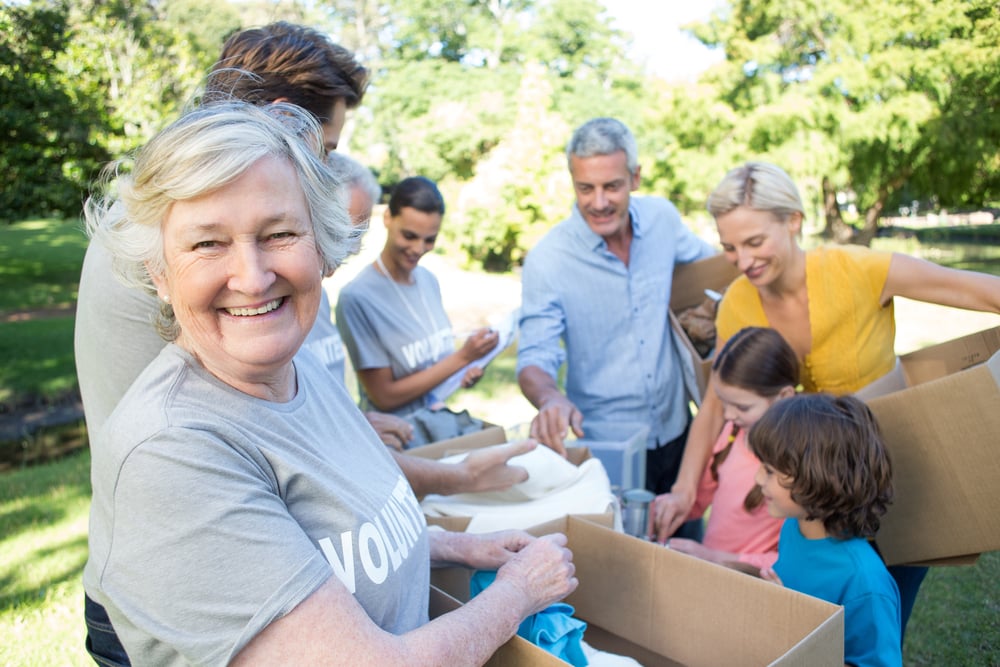How to begin moving from your family home into your retirement
When the time comes to move into your new retirement community, there are many decisions to make – how much will fit, what to take and what to do with the rest.
Your new home might be smaller than your present home, so you’ll need to downsize your belongings. Even if it’s not, you might be ready to let go of some of your possessions and live more simply in your retirement years.
Whichever way you look at it, packing is stressful. Here are some tips to help make the job a little easier, and maybe even enjoyable!
1) Start planning early
Once you know you’re making the move to retirement village living, you can start the process of sorting and packing. How long you have before moving day, and how much you need to sort through, will determine whether you can take your time or need to get cracking.
If you can, limit yourself to two to three hours a day. It might not seem like a lot but spending hours or days on end sorting out your belongings can take its toll, mentally and physically, so pace yourself.
2) Ask for help
No matter how organised and capable you are, it never hurts to reach out and ask others for a hand. Often family or friends want to help but are just waiting for you to ask. Their participation can also help them feel a part of the process as this move could be a big time of transition for them too.
Make sure you get the right kind of help for the right kind of job. Your adult children and older friends might be perfect for helping you sort through family mementos while the younger ones like your grandchildren usually have the speed and fitness to do some of the heavy lifting.
3) Make it a sociable experience
If you or your loved ones want to stop and reminisce along the way, and you have time to do so, then stop. This is an important time for everyone involved and taking time to talk, laugh, or cry as the memories come up can help quell the feelings of overwhelm or anxiety that might arise.

This could also be a good time to let your adult children claim their own keepsakes that you’ve been hanging onto, such as their school report cards, yearbooks, photos, trophies etc.
Parts of the sorting and packing will feel like ‘work,’ but you can still have some fun and make it an enjoyable experience for everyone involved. Put on some music, order takeaways, take things at a pace that works for you.
4) Look after your personal safety
You may have moved many times, but probably not for a long time. Leave the heavy lifting to someone who is fit and capable. The last thing you need is for you or your loved ones to suffer an injury, even a minor one. Having said that, make sure you keep the first aid kit close by as bumps and scrapes are bound to happen.
5) Don’t feel pressured
When sorting through possessions, don’t feel the pressure to make quick decisions – despite what you might have seen on those decluttering TV shows! Of course, if time is not on your side, you can’t dilly dally, but don’t let anyone force you into making snap decisions on the spot.
6) Decide to decide
There are only so many things you can do with each of your belongings:
- Keep it and take it with you
- Give it to family or friends
- Store it (in a facility or with family/friends)
- Sell it (online or in a garage sale)
- Donate it to charity or to someone who needs it
- Throw it away
Most of the above choices are clear. Choosing to store however, could just be a costly way to avoid making decisions. So, whilst you don’t want to feel pressured, at some point you will also have to make decisions about every item.
Giving things away to friends and family should be an easier decision and something they can be involved in. When donating to charity or to someone in need, remind yourself that if you don’t use something every day (unless it’s an ornament or heirloom) or have multiple of the same item, or are keeping it ‘just in case’ it’s best to let it go. There’s no point in things cluttering up your cupboards and drawers or gathering dust, when someone else can put it to good use.

Selling through a garage sale or online can be a good little money earner, if you have the time and the inclination. If you go down that path, once again ask for help from someone who has done it before. You might be surprised how much of your ‘trash’ is someone else’s treasure!
7) Keep your important paperwork
You can usually destroy old bills and paperwork that’s no longer necessary, but be on the lookout for important documents that you need to keep, including:
- Birth certificates
- Passports
- Wills
- Powers of attorney
- Deeds
- Financial documents
- Medical records
- Diplomas and degrees
There may also be some family-related paperwork that you want to keep but can hand over to a family member to look after now. When packing your paperwork, remember to keep it in a safe place and let family members know where it in case they need to access it in the future.

8) Hire a moving company
Once you’ve done your job of sorting, it’s worth investing in professional movers to do the rest. Whilst your family members might insist on saving a few dollars and hiring a van, the mental and emotional stress (for everyone) may not be worth it. At least get a few quotes first and weigh up your options.
9) Give your pets a little holiday
When it’s time to move, it may be kinder on you and your furry companions to give them a holiday for the days leading up and following the move. If you’re fortunate to be able to take them with you into your retirement community, make sure you’re mostly settled before bringing them home.
As you know, pets pick up on your stress so it’s better for everyone if you (and they) have one less thing to worry about.
10) Give yourself a little holiday!
If you don’t need to be present on moving day, then don’t be! Trust your movers, trust your family or whoever is taking care of things for you and book yourself a night or two away from it all.
No matter how smoothly things run, it’s still a stressful and emotional time. If you can, book a motel close to your retirement village. Then you can still be there if you’re needed, but at least you have a bed to come home to until you’re all set up in your new home.
Come home to Kensington Gardens
After working hard, raising a family, and giving to others, now it’s time for to enjoy your golden years! Kensington Gardens retirement communities in Albury and Shepparton offer a wonderful lifestyle to come home to.
Our retirement villages are home to an amazing community of people – all at the same age and stage of life as you. We’ll welcome and support you every step of the way as you settle into life at Kensington Gardens.
Our team, along with our residents would love to meet you and show you how retirement living really should be – secure, friendly, interesting, fun, and carefree! Call us today at Albury on 02 6049 3100 or Shepparton on 03 5820 5100 to arrange a personal tour or reach out online to book a time.






